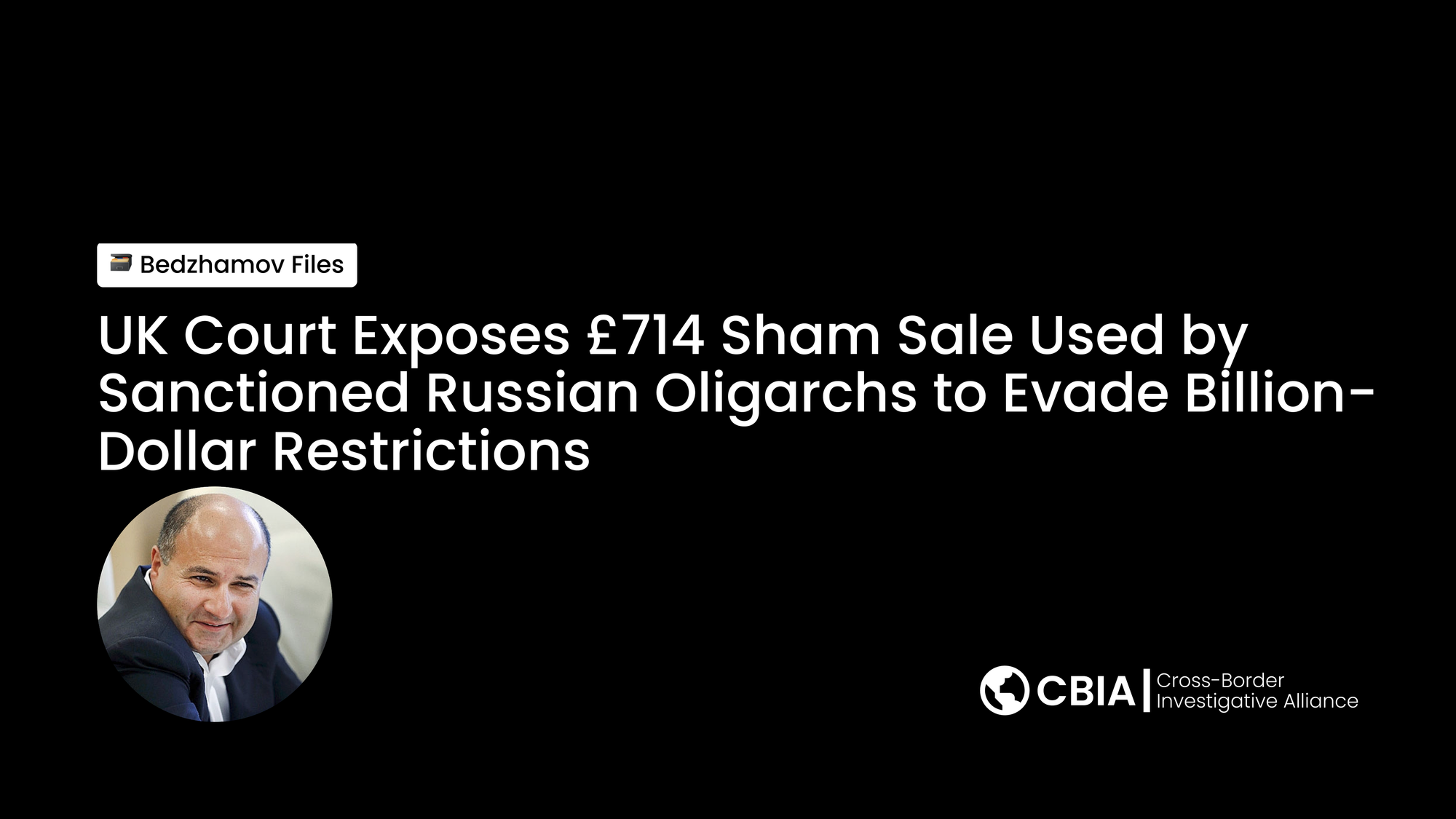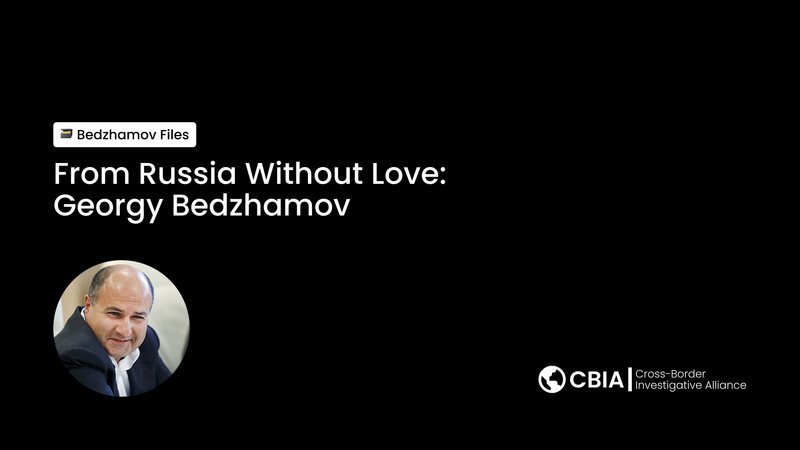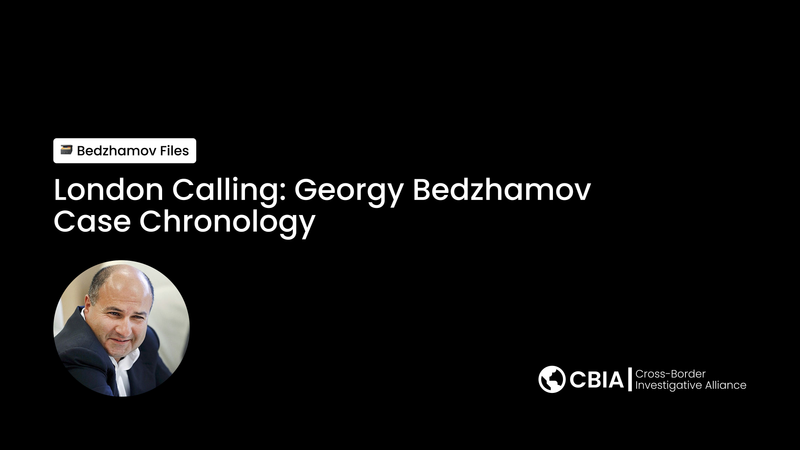UK Court Exposes £714 Sham Sale Used by Sanctioned Russian Oligarchs to Evade Billion-Dollar Restrictions

In a damning judgment that exposes sophisticated sanctions evasion tactics, the UK High Court has determined there is "reasonable cause to suspect" that a litigation funding company remains under the control of sanctioned Russian oligarchs—despite a suspicious £714 sale designed to circumvent international restrictions [1].
The case centers around A1 LLC, which had been financing a $1.3 billion fraud claim by Russian bank Vneshprombank against Georgy Bedzhamov. The court scrutinized the March 2022 sale of A1 to a long-term company director for the nominal sum of £714, which occurred immediately after the company's beneficial owners—Mikhail Fridman, German Khan, and Alexey Kuzmichev—were placed on UK sanctions lists [1].
Justice Cockerill described the sale price as "surprising on its face" and noted that the financial documentation "fails to provide a coherent or robust justification for that figure." The judge found "obvious omissions" in the company's balance sheet, including the absence of a $20 million debt owed by Vneshprombank and approximately £4 million held in UK courts as security [1].
The oligarchs in question are three of Russia's most prominent business figures. Fridman, Khan, and Kuzmichev founded the Alfa Group in 1989, which describes itself as "one of the largest privately owned financial-investment conglomerates in Russia." All three were sanctioned on March 15, 2022, as part of the UK's response to Russia's invasion of Ukraine [1].
The court revealed that A1's role went "well beyond that of a conventional litigation funder," effectively managing legal proceedings on behalf of the Russian bank. This arrangement allowed the company to potentially recover substantial sums from the litigation while operating within the UK legal system [1][2].
Crucially, the supposed sale to Alexander Fayn—an 80-year-old long-term employee who had previously held nominal shareholdings in Alfa Group entities—raised multiple red flags. The court noted his apparent history of acting as a "nominee shareholder" and questioned his ability to actively run the business given his age and lack of previous major positions [1].
The timing of the transactions was particularly suspicious. Khan and Kuzmichev allegedly sold their 52% stake to another Alfa director, Andrei Kosogov, just before their sanctioning on March 15, 2022. However, the court found "no clear or reliable evidence" that this transfer occurred before the sanctions took effect [1].
Justice Cockerill identified several concerning factors:
- The £714 sale price bore no relation to A1's actual financial position
- Key assets worth millions were mysteriously omitted from balance sheets
- Interest payments on borrowed funds showed nil figures, suggesting "non-standard commercial arrangements"
- A professional valuation supporting the low price was conducted in under five days and provided no methodology [1]
"This is not a situation where there is one query or area where suspicions arise. It is a case where there are multiple overlapping indications which suggest that the transfer and sale were not arms length transactions," the judge concluded [1].
The case highlights a critical vulnerability in sanctions enforcement. While the UK and international partners have imposed extensive financial restrictions on Russian oligarchs, this judgment reveals how sophisticated corporate structures and nominal sales can potentially circumvent these measures.
A1 LLC is no longer funding the litigation, having been replaced by another entity, Cezar Legal Consulting Agency, in March 2024. However, representatives for Bedzhamov indicated they would need to conduct further due diligence on the new funder to ensure similar issues were not present [2].
The ruling represents a significant development in sanctions enforcement, demonstrating judicial willingness to look beyond paper transactions to examine the substance of alleged corporate restructuring. It sends a clear message that UK courts will not simply accept nominal sales at face value when there is evidence suggesting continued control by sanctioned individuals.
For sanctions compliance professionals and legal practitioners, this case provides crucial guidance on the factors courts will consider when evaluating whether sanctions evasion has occurred through corporate restructuring. The judgment emphasizes the importance of genuine arm's length transactions and comprehensive documentation when dealing with entities potentially connected to sanctioned persons.
Sources:
[1] UK Courts and Tribunals Judiciary - Vneshprombank v Bedzhamov Judgment (2024)
[2] Legal Futures - High Court: Sanctioned Russians "probably owned" litigation funder



